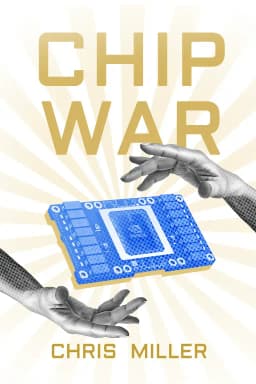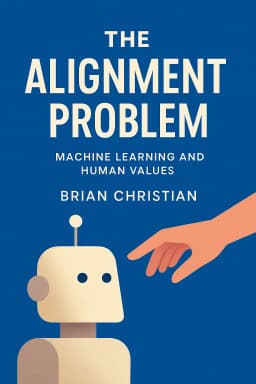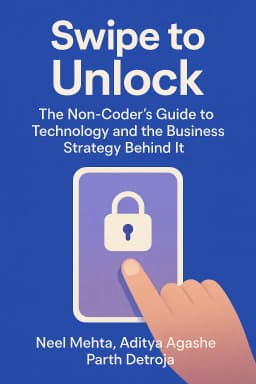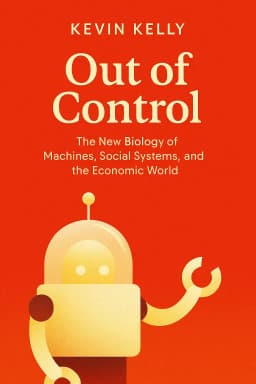
Are You the Gatekeeper?
Golden Hook & Introduction
SECTION
Joe: Most people think the internet made the world flat and open. What if the most powerful people on earth are actually getting rich and powerful by building new kinds of walls? Lewis: Whoa. Joe: And what if you're already living inside one, and you don't even know it? Lewis: Okay, that’s a heck of an opener. It sounds like the plot of a sci-fi thriller, but I have a feeling this is grounded in something very real. Joe: It is. That's the provocative idea at the heart of The Seventh Sense: Power, Fortune, and Survival in the Age of Networks by Joshua Cooper Ramo. Lewis: And Ramo is a fascinating guy to be writing this. He's not some academic in an ivory tower. He was the youngest senior editor in Time magazine's history, he's an avid pilot, and he's considered one of the leading Western experts on China. He's been in the room with CEOs and generals. Joe: Exactly. He's seen how power really works. And he argues we're in a moment as transformative as the Enlightenment, but most of us are completely blind to the new rules. We feel this constant, low-grade anxiety, this sense that things are speeding up and spinning out of control, whether it's politics, the economy, or just our own lives. Lewis: I can definitely relate to that feeling. It’s like we’re all playing a game where the rules changed, but nobody handed us the new manual. Joe: That is the perfect way to put it. And Ramo's book is an attempt to write that manual. He says that to navigate this new world, we need to develop a new instinct. He calls it the Seventh Sense.
The Seventh Sense: A New Instinct for a Networked Age
SECTION
Lewis: Hold on, a 'sense'? That sounds a bit mystical. Is he just talking about being tech-savvy? Like, knowing how to code or use the latest app? Joe: Not at all. It’s much deeper. He uses this incredible historical story to explain it. Picture the battlefield at Jena in 1806. On one side, you have the Duke of Brunswick, a respected, by-the-book general with a bigger, better-equipped Prussian army. He looks at the field and sees soldiers, cannons, and cavalry. He feels confident. Lewis: As he should. He has the advantage. Joe: On the other side is Napoleon. He looks at the exact same field, but he sees something entirely different. He doesn't just see the pieces; he sees the connections between them. He sees, in Ramo’s words, an "interlocking set of murderous gears" that he can set in motion with a single push from his artillery. He saw the network. Lewis: And the Duke of Brunswick just saw an army. Joe: Precisely. The Duke was blind to this new way of seeing warfare, and he was killed and his army was annihilated. Napoleon had what was called the coup d'oeil—the 'glance of the eye'. It was an intuitive genius for seeing the hidden dynamics of the battlefield. Ramo argues the Seventh Sense is the modern version of that. It’s an instinct for seeing the hidden power dynamics of our networked world. Lewis: Okay, that’s a powerful analogy. So it’s not about knowing facts, but seeing patterns and power flows that others miss. A modern Napoleon would be someone like… a hedge fund manager who sees a market collapse coming when everyone else is bullish? Joe: Exactly. Or a political strategist who understands how a single idea can cascade through social media to topple a government. It’s about understanding that everything is now connected—finance, biology, terrorism, culture—and that these connections create new forces. But it's not just about a Western, action-oriented view like Napoleon's. Ramo also tells the story of a Chinese scholar named Master Nan. Lewis: What was his story? Joe: In the 1940s, Nan was already a master of martial arts and a political advisor. But he felt something was missing. So he went to a remote Buddhist monastery for three years, not to learn more facts, but to sharpen his inner spirit, to cultivate an instinct for the essence of things. He wanted to feel the world, not just analyze it. Lewis: So it's a combination of Napoleon's strategic vision and Master Nan's deep, intuitive feeling. Joe: Yes. It’s a way of perceiving the world that combines sharp analysis with a deep, almost philosophical intuition about how systems connect and behave. It’s the instinct that separates those who will master this new age from those who will be mastered by it.
The Nature of Network Power: How Connection Changes Everything
SECTION
Lewis: Okay, so this 'sense' is about seeing the power in connections. But what does that actually mean? How does a connection change something? It’s still the same object, right? A phone is a phone, whether it’s connected to the internet or not. Joe: That’s the assumption the book completely dismantles. The fundamental rule of this new age, according to Ramo, is that connection changes the nature of an object. Fundamentally. Lewis: How so? Give me an example. Joe: Let's take the English language. For centuries, being a fluent English speaker was a huge advantage. It was a tool you possessed, a form of power. It was the protocol for global science, finance, diplomacy. Lewis: Right, the world’s lingua franca. Joe: But now, think about real-time machine translation. Suddenly, the power isn't in speaking English. The power shifts to whoever designs and controls the translation algorithm. The person who controls the protocol that connects all languages now has the influence. The English language, as an object of power, has been transformed by its connection to this new network of AI translation. Lewis: Wow. I never thought of it that way. The power moves from the content to the conduit. From the language to the algorithm. Joe: Exactly. And this applies to everything. A car connected to a network is no longer just a mode of transport; it's a data-gathering device. A dollar connected to a global financial network behaves differently than a dollar in your pocket. This is the core insight of the Seventh Sense. Lewis: That's a cool example, but it feels benign. Where's the danger in all this? Joe: Ah, this is where it gets dark. Because the flip side of that principle is that constant connection means constant vulnerability. Ramo takes us into the world of hackers, the 'warez dudes' from the early internet. They were the first to truly grasp this. They don't see a computer as a tool; they see it as a bundle of connections, each one a potential doorway. Lewis: A vulnerability. Joe: A huge vulnerability. They understand that you can turn any system into what they call a 'weird machine'—a machine that does something its creators never intended. And this has created a new kind of invisible warfare. The book talks about how the NSA’s top hackers say their goal is to know a target network better than the person who designed it. Lewis: That’s terrifying. So every connection we make, for convenience or progress, also opens a new door for someone to walk through uninvited. Joe: And this leads to a fascinating paradox. The man who laid the groundwork for the internet, Paul Baran, was trying to solve this very problem back in the Cold War. The US military's communication system was centralized, like a hub and spokes. A few nukes could take it out completely. Lewis: A single point of failure. Joe: Right. So Baran designed a decentralized network. Messages were broken into little packets, and each packet could find its own route. If one part of the network was destroyed, the packets would just flow around the damage. The network actually got stronger and more resilient the more it was attacked. Lewis: And that became the internet. Joe: That became the internet. A system designed for survivability through connection. But now, that very same architecture of open, flowing connection is what creates the vulnerabilities that hackers and hostile states exploit. The solution to an old problem created a whole new set of dangers.
Gateland: The New Rules of Power
SECTION
Joe: And this constant vulnerability, this need for control in a chaotic, hyper-connected world, leads directly to the book's most radical and, for some, controversial idea: Gateland. Lewis: Gateland. Sounds like a theme park I do not want to visit. Joe: It’s Ramo’s term for the new landscape of power. He argues that in a world of overwhelming connection, power no longer comes from being the most open. It comes from the ability to build, control, and maintain gates. Lewis: So, walls. You’re talking about building digital walls. Joe: In a way, yes. But it's more nuanced. He uses another brutal historical example. The Battle of Shangani in 1893. A small force of British colonial soldiers in Africa was attacked by thousands of Matabele warriors. The British should have been wiped out. Lewis: But they weren't. Joe: They weren't. Because they had a new piece of technology: the Maxim machine gun. That gun created a gate. An absolute, lethal barrier. On one side of that gate was survival and victory. On the other was annihilation. The British writer Hilaire Belloc summed up the colonial mindset perfectly in a poem: "Whatever happens, we have got / The Maxim Gun, and they have not." Lewis: That’s a chillingly clear illustration of a power imbalance. So how does that connect to 'Gateland' today? Joe: Ramo argues that the most powerful forces today are doing the same thing, just more subtly. They are creating exclusive, gated systems. Think of the most valuable networks: a high-frequency trading platform, a secure military communication channel, a proprietary scientific database, even the iOS App Store. These are all 'gatelands.' They are powerful not because they are open to everyone, but because they are closed, secure, and efficient for those inside the gate. Lewis: This sounds dystopian. Is Ramo just advocating for a world of digital walls and elite clubs? How is this different from old-school protectionism or building a bigger fence? Some critics felt the book was a bit too comfortable with this idea of elite control. Joe: That's the critical question, and the book's answer is what makes it interesting. He calls the strategy 'Hard Gatekeeping.' The idea isn't total isolation. The gates are permeable, but on the gatekeeper's terms. You can join our trade network, but you have to abide by our rules on labor and environment. You can use our social media platform, but we control the algorithm and the data. The power is in setting the terms of entry. Lewis: So the most important political question of our time is... are you inside or outside the gate? Are you the gatekeeper, or the gatekept? Joe: That is the fundamental question of power in the 21st century. And it applies to nations, companies, and individuals. Being outside a key network—whether it's a financial one or a knowledge-based one—can be a death sentence. Ramo tells a story about the Spanish building fences around their enclaves in Africa. They kept building them higher and higher. It wasn't to stop everyone, but to slow the flow, to manage it, to be the gatekeeper. That's a microcosm of the world we're entering.
Synthesis & Takeaways
SECTION
Joe: When you step back, the journey of this book is incredible. We started with that universal feeling of chaos and disorientation, this sense that the world is broken. Lewis: And we found a new way to see it, this 'Seventh Sense' for networks. Joe: Then we learned the fundamental rule of this new world: connection changes everything, creating both incredible opportunities and terrifying vulnerabilities. Lewis: Which leads us to this stark, and maybe uncomfortable, vision of 'Gateland'—a world where power comes from controlling access. Joe: What I find so powerful is that this isn't really a book about technology. It's a book about power, and how the nature of power itself has shifted. It’s about history, strategy, and human instinct. The technology is just the terrain where this new struggle is taking place. Lewis: Absolutely. Ramo wrote this a few years ago, but it feels more relevant than ever. It makes you look around and ask: What gates am I already living inside? The algorithm that feeds me news? The credit score system that determines my financial life? The professional networks I'm a part of? Joe: It’s a powerful question. And it forces you to think about who holds the keys. The book's final, implicit challenge is that we can't afford to be passive citizens in this new age. We have to cultivate our own Seventh Sense, if only to understand the forces that are shaping our lives. Lewis: We have to learn to see the gates. Joe: We have to learn to see the gates. It's a profound and urgent message. We'd love to hear what you think. What invisible gates do you see in your own life? Let us know on our socials. Lewis: This is Aibrary, signing off.









